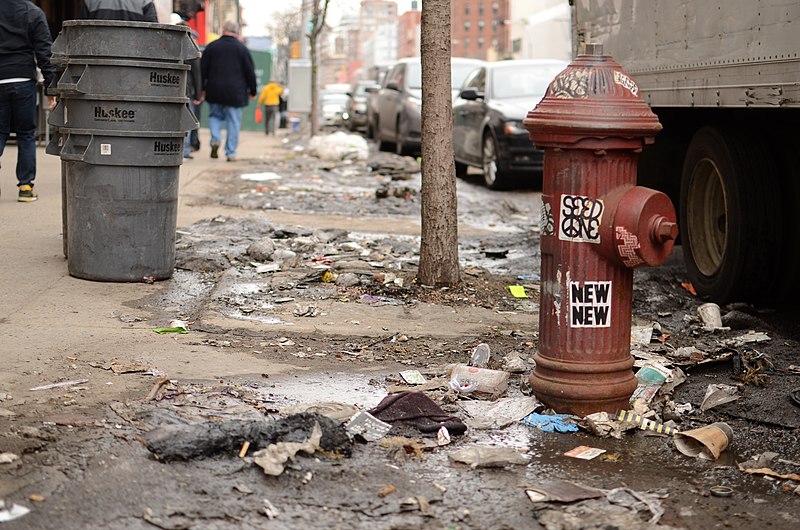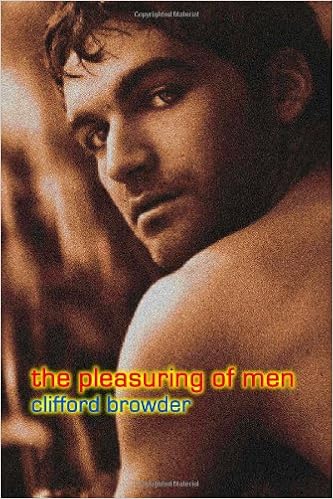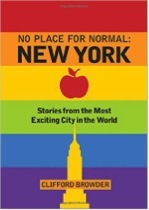For a press release of my new novel, Bill Hope: His Story, go here. This is the second title in my Metropolis series of historical novels set in nineteenth-century New York. The first in the series is The Pleasuring of Men (Gival Press, 2011), mention of which appears at the end of this post.
Bill Hope can be ordered from Amazon and will be shipped after the release date of May 17, 2017. But the paperback, which goes for $20, will cost an additional $4.95 for shipping, unless you order books totaling $25 or more. The book is also available now from the author and will be mailed immediately ($20 + postage). And now let's have a look at litter.
* * * * * * * *
Recently I visited the Jefferson Market Garden on Greenwich Avenue near Sixth Avenue in the West Village. As I walked its paths, I noticed litter near the fence and picked up all I could. The litter was only near the fence, where passersby on the sidewalk outside could toss it onto the grounds; the rest of the garden was clean, for people who visited it were not ones to foul it with litter. But the litter near the fences reminded me of something the renowned theater director Harold Clurman once said, in commenting on a scene from a play about life in small-town Middle America: “Americans are pigs.” He said this in a certain context, but it has stayed with me ever since.
 |
| New York litter, as seen by a Dutch visitor. Steven Lek |
Yes, Americans are pigs.
We have many redeeming qualities, but when it comes to litter and the
environment, we are pigs. We take
gardens for ashtrays, and parks for dumps.
In my hiking days a trail sometimes went for a short distance alongside
a highway, and always, without exception, the shoulder of the road was littered
with plastic cups and spoons, tinfoil, crumpled paper napkins, cigarette butts,
whatever, and the litter often went for eight or ten feet off the road. People in passing cars toss stuff out the
window and, for them, it is disposed of, vanished, gone. Yes, it has gone, but
it hasn’t vanished; it has added to the litter along the highway. I experienced this especially on the
Palisades and in Pelham Bay Park.
Once, on Staten Island, I was hiking through the woods in
Wolfe’s Pond Park, hoping for a bit of nature, but what struck me most was the
litter. Disgusted at first, I finally
began to feel a weird fascination at the richness and variety of it, and began
jotting down notes that would later become a poem. Looking at that poem today, I find a chronicle
of the specifics encountered back then:
· Cheese Doodle bags
· Yoohoo bottles (“Five vitamins, three minerals”)
· matchbook covers (“Finish high school now”)
· Tangy Taffy wrappers
· dented Budweiser cans
· crumpled tinted tissues
· soggy mattresses
· Eureka disposable dust bag and filter packages
· empty Merit and Marlboro and True cigarette packages
· Snickers and Doublemint wrappings
· Pepsi bottles
· deranged grocery carts
· bits of foam rubber and sponge
This list is, in its strange
way, a comment on American consumerism, and as regards the culprits involved,
the proximity of Tottenville High School is not irrelevant; the youth of our
nation are just as culpable as their motorized elders. But the presence of discarded grocery carts and
mattresses incriminates the elders of the neighborhood as well, or rather, it
incriminated them back then, since I don’t know what the situation is today.
 |
| Wolfe's Pond Park in 2008. There's hope: I see what looks like only one small bit of litter. |
 |
| An attempt at better in New York, courtesy of the EPA: a cement trash can, not easily overturned or stolen. But have you seen one lately? This was back in 1973. |
Our litter can sometimes achieve the status of surreal. The French Surrealists of yore imagined a
locomotive abandoned in a forest as surreal, but in this country their fantasy
has become only too real. While hiking the
Blue Trail in the Greenbelt of Staten Island (with apologies to the responsible
citizens of that borough), I crossed over the Staten Island Expressway on an
abandoned highway ramp known as Moses’ Folly, a relic from an attempt by Robert
Moses to ram a highway right smack through the Greenbelt, a project that was
stopped by local opposition. The
abandoned ramp, lunging high in the air to nowhere, is surreal enough, and the
graffiti covering it do not detract from the victory, literally monumental, of
the embattled local residents and environmentalists. But after crossing the expressway on the
ramp, the Blue Trail turns sharply to the left and steeply descends a wooded
ravine to a trickle of a stream, before climbing up another steep incline to
another abandoned ramp and continuing on its way. In that wooded ravine are found numerous
abandoned cars, overgrown with vines almost to the point of vanishing: litter
on the grand scale, if you like, and absolutely surreal, but litter none the
less.
 |
| Tommi Nummelin |
On Broad Channel in Jamaica Bay, Queens, while accessing the
Jamaica Bay Wildlife Refuge, I once also encountered an abandoned car and,
incensed at this violation of otherwise unspoiled nature, relieved my bladder
on the offending vehicle.
Visitors to our cities have commented on the prevalence in
the streets and parks of used condoms and orange peels, concluding with some
justification that Americans have a great propensity for making love and eating
oranges. I would add plastic as well:
plastic cups, plates, knives, forks, and spoons that I have found fouling the
most delightful vistas of natural scenery, not to mention the gutters and
abandoned lots of our cities. And in
winter, when the trees are stripped bare of foliage, one can see, impaled high
up on twigs like tattered ensigns, a host of plastic bags.
Yet Americans, when they set their minds to it, can do
better. The state of Maine, where I have
often vacationed, has highways free from litter. The moment you cross the state line, you
notice the change, the result of a statewide campaign to keep Maine green. And here in New York City, the volunteers of
various conservancies and neighborhood organizations have done wonders in
cleaning up our parks and public spaces.
“Keep Britain tidy” read signs that I used to see during a
visit long ago to England. “Tidy” is not
a concept to be applied to the United States, a vast nation stretching the
width of a continent; we’re just too big to be tidy. But if every citizen picked up a single bit
of litter every day, the result would be astonishing. For years now I have made it my concern to
pick up bits of litter in a little public garden near pier 46 and the Hudson
River, determined to at least keep this one small bit of nature untainted. But beyond that, I won’t hold my breath. Humans are capable of keeping their cities
clean; a world traveler of my acquaintance assures me that Tokyo, with a much
greater population than New York, is spotlessly clean and unlittered. But here in the U.S., except for a blessed
minority, we are too hurried, too involved on our busy lives, to be distracted
by such trivia. Yes, alas, Americans are
pigs.
BROWDERBOOKS: No Place for Normal: New York / Stories from the Most Exciting City in the World, my selection of posts from this blog, has received these awards: the Tenth Annual National Indie Excellence Award for Regional Non-Fiction; first place in the Travel category of the 2015-2016 Reader Views Literary Awards; and Honorable Mention in the Culture category of the Eric Hoffer Book Awards for 2016. For the Reader Views review by Sheri Hoyte, go here. As always, the book is available from Amazon and Barnes & Noble.

Coming soon: I Hate Poetry.
© 2017 Clifford Browder
* * * * * *
BROWDERBOOKS: No Place for Normal: New York / Stories from the Most Exciting City in the World, my selection of posts from this blog, has received these awards: the Tenth Annual National Indie Excellence Award for Regional Non-Fiction; first place in the Travel category of the 2015-2016 Reader Views Literary Awards; and Honorable Mention in the Culture category of the Eric Hoffer Book Awards for 2016. For the Reader Views review by Sheri Hoyte, go here. As always, the book is available from Amazon and Barnes & Noble.
 |
The Pleasuring of Men (Gival Press, 2011), the first novel in the Metropolis series, tells the story of a young male prostitute in the late 1860s in New York who falls in love with his most difficult client It is likewise available from Amazon and Barnes & Noble.

Coming soon: I Hate Poetry.
© 2017 Clifford Browder



1269D0A65F
ReplyDeleteTakipçi Satın Al
TT Ücretsiz Beğeni
Film Siteleri
En İyi Filmler
Ücretsiz Abone
Takipçi Hilesi
Backlink Satın Al
Online Oyunlar
Para Kazanma